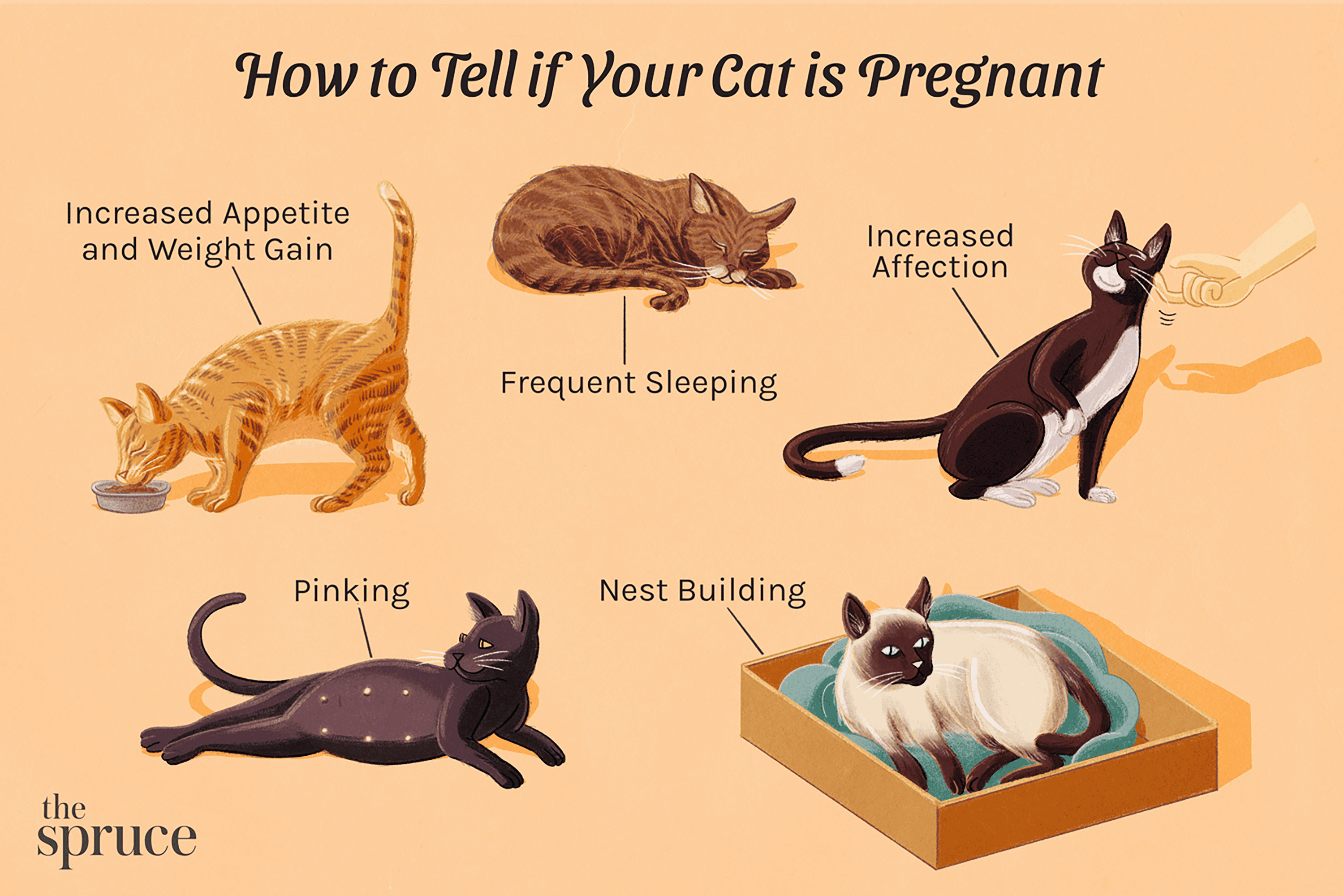How Long Is a Cat Pregnant? Understanding Feline Pregnancy Duration
Cat pregnancy duration is a topic that piques the curiosity of many cat owners. Knowing how long a cat is pregnant is essential for providing proper care and anticipating the arrival of adorable kittens. In this article, we delve into the intricacies of feline pregnancy length and offer insights to guide cat owners through this exciting journey.
Cat Pregnancy Basics:
While the concept of pregnancy is familiar, feline reproductive cycles differ from those of humans. Understanding the fundamental biology of cat pregnancy involves recognizing the various stages and processes that lead to the birth of healthy kittens. This knowledge empowers cat owners to be proactive in ensuring their furry companions’ well-being.
Average Cat Pregnancy Duration:
The duration of a cat’s pregnancy is a critical piece of information. On average, a cat’s pregnancy lasts between 63 to 65 days from the moment of conception. However, this range can vary depending on factors such as breed, age, and the health of the cat. By grasping this timeline, cat owners can better prepare for the upcoming changes and care requirements.
Signs of Cat Pregnancy:
Identifying the early signs of cat pregnancy is crucial for providing appropriate care. Watch for behavioral changes such as increased affection or nesting behaviors. Physical cues like a slightly enlarged abdomen and changes in appetite can also indicate pregnancy. Understanding these signs allows cat owners to offer the necessary support and ensure a comfortable environment for the expectant mother.
Stages of Cat Pregnancy:
Cat pregnancy can be divided into distinct stages, each marked by specific developments. The first stage includes fertilization and the journey of the fertilized egg to the uterus. The second stage is characterized by the embryo’s growth and the mother’s expanding abdomen. The third and final stage involves preparing for birth as the kittens grow in size. Familiarizing yourself with these stages enables you to anticipate changes and milestones.

Preparing for Cat Birth:
As the due date approaches, preparing for cat birth becomes essential. Create a quiet and secluded nesting area where the expectant mother can feel safe. Provide soft bedding and ensure easy access to food and water. Cats often exhibit nesting behaviors, such as seeking out cozy spots, which indicates their readiness to give birth. By catering to their natural instincts, you can facilitate a smooth birthing process.
Cat Pregnancy Care:
During pregnancy, a cat’s nutritional needs change. Providing high-quality cat food rich in essential nutrients is vital for both the mother and her developing kittens. Consult your veterinarian for specific dietary recommendations. Regular vet check-ups ensure that the pregnancy is progressing smoothly and any potential issues are addressed promptly.
Potential Complications:
While most cat pregnancies proceed without problems, it’s important to be aware of potential complications. Keep an eye out for signs of distress or unusual behavior. Difficulty in giving birth (dystocia), uterine infections, or miscarriages are some challenges that may arise. If you observe anything concerning, seek veterinary attention immediately to ensure the well-being of the mother and her kittens.
Welcoming the Newborns:
Once the kittens are born, provide a warm and quiet area for the mother and her offspring. Newborn kittens are delicate and require close monitoring during their early days. Ensure that each kitten is nursing and gaining weight. If you notice any issues, consult your vet for guidance. As the kittens grow, they’ll begin to explore their surroundings, marking the start of an enchanting journey.
FAQs about Feline Pregnancy Duration
Q: How long is a cat pregnant?
A: On average, a cat’s pregnancy lasts around 63 to 65 days from conception to birth.
Q: Does cat pregnancy duration vary by breed?
A: Yes, some cat breeds might have slightly shorter or longer pregnancy periods, but the average range holds true.
Q: Can you tell if a cat is pregnant by its behavior?
A: Yes, pregnant cats might show behavioral changes like increased affection, nesting behaviors, and changes in appetite.
Q: Are there signs that a cat is close to giving birth?
A: Yes, as the due date nears, cats might become restless, seek secluded spots, and exhibit nesting behaviors.
Q: Can you determine the exact day a cat conceived?
A: Determining the exact day of conception can be challenging, but a veterinarian might estimate based on known mating times.
Q: How can I prepare for my cat’s pregnancy?
A: Create a quiet nesting area with soft bedding, ensure proper nutrition, and consult your vet for guidance.
Q: What should I do if my cat’s pregnancy lasts longer than expected?
A: If the pregnancy exceeds 65 days without signs of labor, consult your vet to rule out complications.
Q: Are there risks associated with cat pregnancies?
A: While most pregnancies proceed smoothly, complications like dystocia (difficulty in giving birth) can occur. Regular vet check-ups are crucial.
Q: When can newborn kittens start nursing?
A: Newborn kittens typically start nursing shortly after birth. Their need for nourishment is immediate.
Q: How can I help my cat care for her kittens after birth?
A: Provide a warm and quiet area for the mother and kittens, monitor nursing and weight gain, and seek vet advice if needed.
Conclusion:
The journey of a cat’s pregnancy is a fascinating and transformative experience, both for the feline mother and her human caregivers. Understanding how long a cat is pregnant is just the beginning of a journey filled with anticipation, care, and joy. By recognizing the signs, stages, and considerations of feline pregnancy, cat owners can ensure the well-being of their beloved pets and their future kittens.




